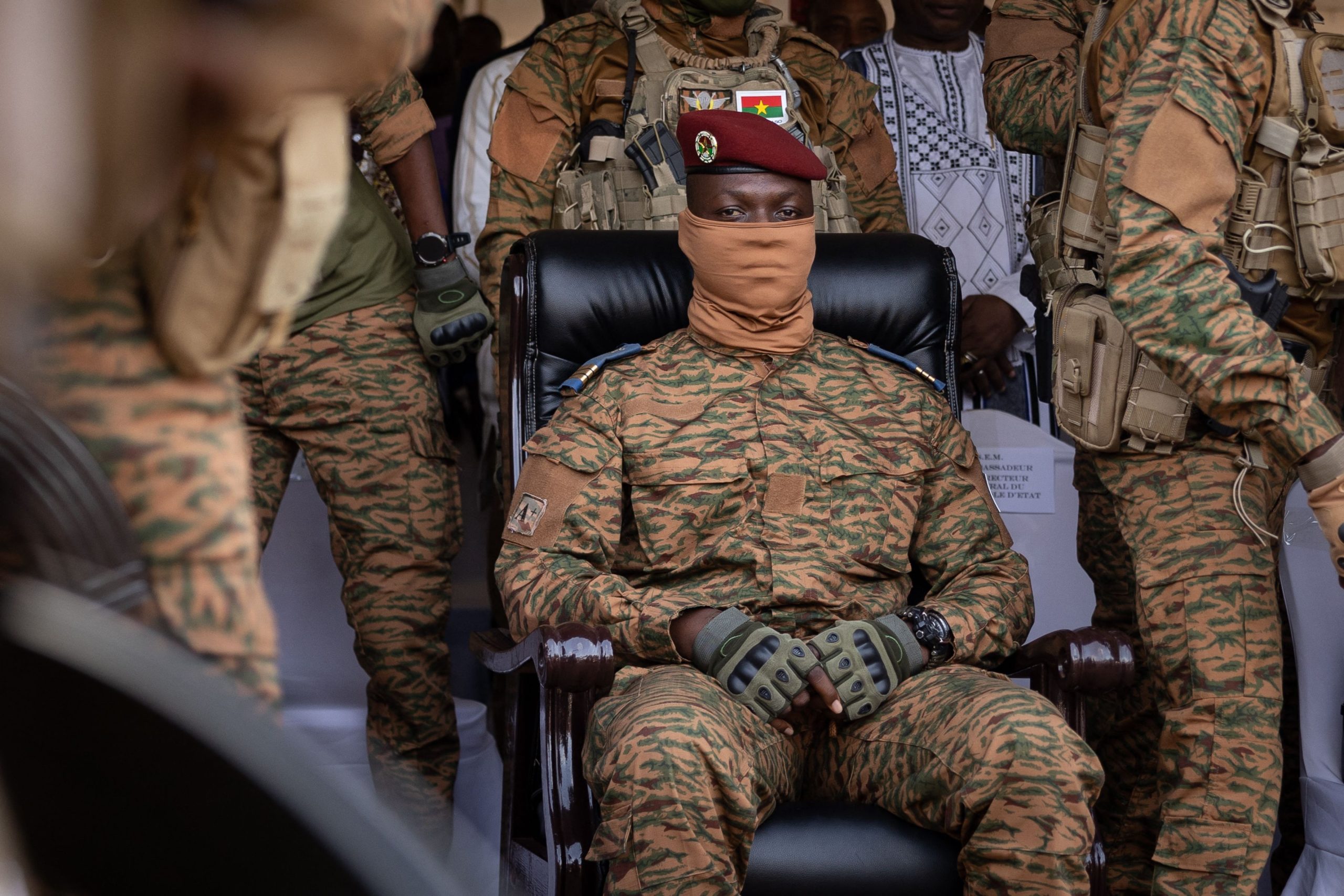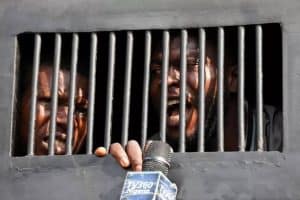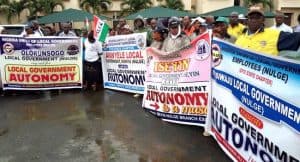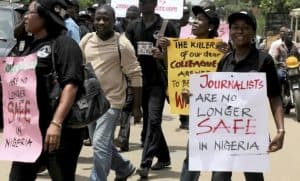
TOPSHOT - Capitaine Ibrahim Traore, Burkina Faso's new president, attends the ceremony for the 35th anniversary of Thomas Sankaras assassination, in Ouagadougou, on October 15, 2022. - Captain Ibrahim Traore, who took power a fortnight ago in a coup in Burkina Faso, attended a ceremony on October 15, 2022 to mark the 35th anniversary of the assassination of revolutionary president Thomas Sankara, an AFP reporter noted. (Photo by OLYMPIA DE MAISMONT / AFP) (Photo by OLYMPIA DE MAISMONT/AFP via Getty Images)
On January 28, the trio of Mali, Niger, and Burkina Faso announced their withdrawal from the Economic Community of West African States (ECOWAS). The countries stated that withdrawal from the West African bloc was a sovereign decision made after enduring heavy sanctions and inhumane treatment for running military governments.
The coup masterminds leading the three countries also claimed ECOWAS was inhumane to them since becoming leaders of their states using military force to wield power. However, their secession from the West African bloc might plunge other countries into coup plotting, endangering democracy and the rule of law, according to global affairs analysts and international politics pundits.
Before the recent withdrawal from ECOWAS, the three countries had formed a coalition named the Alliance of Sahel States (ASS). Experts and observers have said such a coalition is dangerous because it might be a stride towards forming a military confederacy against democratic governments in the region. The three seceding governments have been plagued by military coups — an unholy revolution against democracy.
The secession is a dangerous journey that will stunt the growth of democracy in the African region because the basic objective will be to fight those striving for the comeback of democracy, not for development, Owodunni Adekunle, a political analyst asserted. And unfortunately, the citizens who are also tagged “innocent masses” seem to ignorantly have a wild faith in the military regime, a clear result of failed phases of democracy.
Niger’s democratic government was recently overthrown and is currently governed by a military junta, a movement that garnered appraisals from citizens and considered culpable by critics. Similarly, Mali, a country that has experienced four different military coups since independence, is still under military rule while Burkina Faso is also governed by a military junta. The military in Mali and Burkina Faso took over after the ruling democratic governments were overthrown on accounts of bad leadership, and garnered joyful demonstrations from the citizens.
The unaccepted military leadership from these states caused ECOWAS to take heavy actions against them while pressing for their democratic transition. But an alliance of the three military states would describe the ECOWAS decision as “inhumane.”
Considering the citizenry’s reactions following the military takeover in some West African countries like Gabon, Mali, Burkina Faso, and Niger, it appears the electorate has lost trust in the democratic system. Similarly, other subpar democratic rules in the region might end up being gulped by a military coup, experts warned, noting that the actions of the Alliance of Sahel States might also propel military takeovers in other countries where democracy is not at its best.
“The success of military coups and the joyful demonstrations it garnered from citizens show that democracy is no longer a welcomed regime in most African countries,” Owodunni told TheLiberalist. “Inarguably, this will embolden more military guys to leave the barracks to take over subpar democratic rules.”
The withdrawal from ECOWAS means that the three states are now free from international binding laws. With the absence of these binding laws and pressure to revert the already entrenched junta rule to democratic rule, the countries are unrestricted in their enactments. As exemplified by the joyful demonstrations of Mali citizens after the military took over, democracy appears to be eroding in the country. However, the state’s membership in ECOWAS gleaned a ray of hope for Democracy until its recent withdrawal.
Interestingly, some foreign power holders seem to be backing the exit of the junta-led states from ECOWAS. On January 25, the Russian government extended military support to Burkina Faso and deployed military troops to amplify the country’s security. Before then, Russia had deployed troops to Mali to also amplify the security force in the country.
Russia’s support unfortunately emboldened the junta-led countries against ECOWAS, following the bloc’s move to intervene in the Niger coup. With Russia’s fortification of Mali and Burkina Faso’s military powers, ECOWAS intrusion is abolished, leaving little or no possibility of the states’ transition to democracy.
Democracy in the West African region is on the brink of collapse, experts warned, noting that this is caused by the lack of accountability in public offices, a surge in insurgency and the electorate’s distrust in government authorities. The current situation shows that the tenets upon which democracy is founded are ill and eroding.
Obviously, African democratic leaders are culpable for the current crisis that has befallen democracy, Owodunni stated further. The political analyst also said every upholder of the tenets of democracy has destroyed it and installed aristocracy with their own hands.
“Military rule is not the way out of the despicable mess in Africa,” he remarked, bemoaning how citizens in military-ruled countries celebrate coup masters.
“The citizens have failed woefully in their stead to uphold the tenets of democracy as well,” he noted. “Every citizen has a role to play in a democratic regime but African citizens only become politically conscious when it is time to elect new leaders.”
Muhammed Muazu, a grassroots political analyst also said citizen participation is crucial to the survival of any democratic regime, and it’s high time we took it seriously. Drastic steps must be taken to revive democracy in Africa with priority on transparency, accountability, and citizen participation, he added.
“If contemporary democracy were practiced according to the principles upon which it was founded, definitely, a review of outdated and repressive laws would be crucial,” Muhhamad stressed, adding that “historical legacies and weak constitutions are some of the factors hindering the dynamism of African democracy.”








